isis
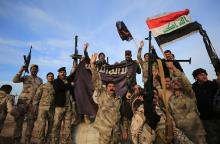
As an evangelical theologian and pastor, I want to say that ISIS is evil. Evil is a term we don’t normally hear in the media or politics, which is likely a good thing given our lack of public morality and civility these days. Indeed, judgementalism was condemned by Jesus, but is still often practiced by many churches — so humility is always called for. But it is still a responsibility of the faith community to name evil where it clearly exists in the world. And by any standards, the actions of ISIS are evil.
The latest report issued by the Office of the UN High Commissioner for Human Rights and the UN Assistance Mission for Iraq on “The Protection of Civilians in Armed Conflict in Iraq,” catalogues the human rights atrocities committed by ISIS, making it abundantly clear that this group is evil. They include:
- attacks directly targeting civilians and civilian infrastructure,
- executions and other targeted killings of civilians,
- abductions, rape and other forms of sexual and gender based violence perpetrated against women and children,
- slavery and trafficking of women and children,
- forced recruitment of children,
- destruction or desecration of places of religious or cultural significance,
- wanton destruction and looting of property, and denial of fundamental freedoms.
The report goes on to identify the targeting of ethnic and religious groups — such as Christians, Yazidis, Shi’ite Muslims, and many others —and subjecting them to “gross human rights abuses, in what appears as a deliberate policy aimed at destroying, suppressing or expelling these communities permanently from areas under their control.” The report describes the actions as possible “war crimes, crimes against humanity, and possibly genocide.”
In light of these sober findings, the faith community must remind the world that evil can be overcome, and that individuals involved in evil systems and practices can be redeemed. But how to overcome evil is a very complicated theological question, which requires much self-reflection. In trying to figure out how to overcome evil, it is often helpful to first decide how not to. Here is a good example of how not to respond to the reality of evil.
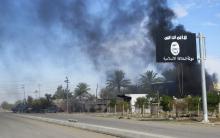
Is the Islamic State — ISIS or ISIL — different from other Islamist terror groups? If so, is the difference one of substance or simply degree? Or is there any real difference at all?
The question preoccupies the best intelligence professionals and academic students of the Arab Muslim world, but so far has produced more confusion than certainty about what we’re witnessing.
Maybe we’re too close. Maybe we’d gain perspective by going back in time — to 1993, say, and an article by a Harvard history professor, Samuel Huntington, in the magazine Foreign Affairs and later in a book titled The Clash of Civilizations.
Huntington saw a grim future and a different kind of war. While nation-states remain principal players in world affairs, he wrote, the great conflicts of the future will be between “different civilizations.”
“The clash of civilizations will dominate global politics,” he wrote. “The fault lines between civilizations will be the battle lines of the future.”




1. Because Extreme Cold Always Brings Climate Deniers Out of the Woodwork …
Bill Nye, yep, the Science Guy, offers the media this helpful prompting: “‘Let’s not confuse or interchange climate change with global warming,’ noting that when the climate changes, ‘some places get colder.’”
2. After the Copenhagen Synagogue Shooting, This Muslim Community Is Responding in the Best Way Possible
“Islam is about protecting our brothers and sisters, regardless of which religion they belong to. Islam is about rising above hate and never sinking to the same level as the haters. Islam is about defending each other. Muslims want to show that we deeply deplore all types of hatred of Jews, and that we are there to support them.”
3. Afghan Civilian Deaths Hit Record High
2014 was the deadliest year on record for civilians in Afghanistan, according to the U.N. Total civilian casualties jumped 22 percent from 2013.
4. Ash Wednesday: To Be Seen
“… revelation does happen and ... we see. We see that we have always been seen by God. God holds us and beholds us even when it can be so hard for us to hold and behold God.”

With the unimaginable evils being committed by ISIS and other terror groups around the world, many Christians are calling for their violent destruction — some even voluntarily taking up arms.
At first glance this may seem like a heroic, brave, and honorable act, but before we start killing our enemies, Christians must ask themselves four very important questions:
1. Did Jesus clearly tell you to kill these people?
In the New Testament, Jesus repeatedly instructs his followers to avoid violence and promote peace.
Jesus states things like:
Blessed are the peacemakers, for they shall be called sons of God. (Matt. 5:9 ESV)
And …
You have heard that it was said, ‘An eye for an eye and a tooth for a tooth.’ But I say to you, Do not resist the one who is evil. But if anyone slaps you on the right cheek, turn to him the other also. (Matt. 5:38-39)
And …

Ash Wednesday begins Lent, a 40-day season in the church’s life leading up to the death and resurrection of Christ on Easter. It is traditionally meant to be a time of reflection, reevaluation, and renewal in our lives, both for the community of faith and in our relationship to the world. But the “R” word that is most characteristic of Lent is “repentance.” And repentance, biblically speaking, is not about the fire and brimstone television preachers but rather about the gospel call to turn around and go in a whole new direction.
Already in these first few days of Lent, I am reminded of how difficult confession, humility, and repentance are in our culture. Humility is something Americans are not particularly good at. Neither are we strong in the areas of self-examination, deep reflection, and repenting for things we have done wrong and then no longer doing them.
We tend to believe if people are poor, there really must be something more wrong with them than with those of us who are not. If black young men are having trouble with police, many white people suspect it must be the things that they are doing more than any problems with the systems we perpetuate.
Our family was just away for a week in the Dominican Republic on baseball service and mission trip, where our boys’ baseball teams do “spring training” with Dominican players and coaches. Spending a week in Consuelo with the Dominican players and the adults in their lives, and meeting the Grey Sisters of the Immaculate Conception who helped host us, provided a glimpse into their lives and a kind of poverty that most American young people have never seen.
We played on their rural “fields of dreams” cut out of sugar cane instead of corn, to wonderfully energetic community stadiums in what is truly a baseball culture. In one game, our high school team got to play the Detroit Tigers Dominican Academy teenage players. It was great baseball — but also a “life-changing experience,” as was told to me by many of our players and their coaches. In addition to the baseball skills, reflection, listening, learning, and asking big questions about how our lives affect others were the lessons of the week.
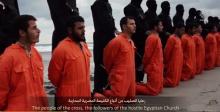
Where does the violence end? And how did it begin?
In such a moment, we imagine ISIS as “different” from ourselves, a whole distinct category of the species homo sapiens. We did the same with Nazis back in the day, as if genocide’s engineers had not been the brothers and sisters of our own immigrant citizens, as if they were not the grandparents of the amiable Germans and Poles we befriend today. We forget, by the way, our own history of torturing — often burning alive — our own African American citizens, grandchildren of those this nation had enslaved. Our own president condemned ISIS and its grotesque ways, and he also reminded us that the potential for such violence dwells within every society. Naturally his opponents went nuts: they are nothing like weare, they cried.
But we are like they are, and they are like we are. Violence breaks us down.
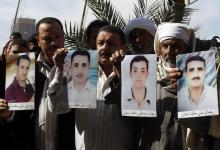
Pope Francis on Feb. 16 denounced the brutal slayings of 21 Coptic Christians in Libya by militants linked to the Islamic State, saying “they were assassinated just for being Christian.”
“The blood of our Christian brothers is a witness that cries out,” Francis said in off-the-cuff remarks during an audience with an ecumenical delegation from the Church of Scotland.
The pope, switching to his native Spanish, noted that those killed only said “Jesus help me.”
“Be they Catholic, Orthodox, Copts, Lutherans, it doesn’t matter: They’re Christian! The blood is the same: It is the blood which confesses Christ,” Francis said.
He said their deaths bore witness to “an ecumenism of blood” that should unite Christians, a phrase he has used repeatedly as the Islamic State continues its bloody march.
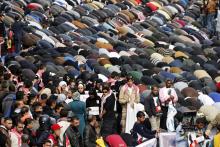
More than a quarter of Americans and nearly half of senior Protestant pastors say the Islamic State terrorist group offers a true representation of Islamic society, according to a pair of new surveys by LifeWay Research.
The findings that indicate many Americans have a dim outlook on Islam come as President Obama sent a formal request to Congress on Feb. 11 to authorize the use of military force to combat the Islamic State. Meanwhile, police in North Carolina tried to determine whether the shooting deaths of three Muslim students were hate-motivated.
Forty-five percent of 1,000 senior Protestant pastors surveyed say the Islamic State, also known as ISIL or ISIS, “gives a true indication of what an Islamic society looks like.” Forty-seven percent disagreed with the statement, according to LifeWay, a Nashville-based, non-profit Christian research group. LifeWay surveyed only clergy who identified themselves as the top pastoral officials in their organizations.
The pastors had a much darker view of Islam than Americans at large.
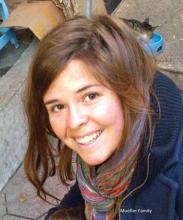
On Tuesday, the U.S. government confirmed that 26-year-old Kayla Mueller, a captive of ISIS since August 2013, has died.
While circumstances of her death remain unclear, details of the young woman's life and work — most recently helping refugees in Aleppo, Syria — have emerged in the last 24 hours, as family, friends, and members of her community share memories and anecdotes of her compassion and big heart for those in need.
The Washington Post reports:
The Rev. Kathleen Day, who headed a campus ministry that Mueller joined at Northern Arizona University, recalled that she wrote in a letter from captivity that she tried to teach crafts to her guards, including how to make origami peace cranes.
“We just delight in that,” Day said, “that Kayla remained Kayla. She said she found freedom even in captivity.”
The Post also shared a letter written by Mueller to her family while in captivity. In it Mueller expresses her experience of faith:
"I remember mom always telling me that all in all in the end the only one you really have is God. ...I have been shown in darkness,light + have learned that even in prison, one can be free."
Mueller's family on Tuesday referenced another letter in which Mueller had written of her faith, this time to her father in 2011. According to the family, Mueller wrote:
"I find God in the suffering eyes reflected in mine. ...I will always seek God. Some people find God in church. Some people find God in nature. Some people find God in love; I find God in suffering. I've known for some time what my life's work is, using my hands as tools to relieve suffering."
In their statement, Mueller's family said,
"We remain heartbroken, also, for the families of the other captives who did not make it home safely and who remain in our thoughts and prayers. We pray for a peaceful resolution of the conflict in Syria."
The family has reportedly requested that expressions of sympathy be made to causes that Kayla would have supported. KPHO reports that additional information will be made available in the coming week.

After listening to one newscast after another rightly condemn the barbaric killing of that Jordanian air force pilot at the bloody hands of ISIS, I couldn't sleep. My mind kept roaming the past trying to retrieve a vaguely remembered photograph that I had seen long ago in the archives of a college library in Texas.
Suddenly, around two in the morning, the image materialized in my head. I made my way down the hall to my computer and typed in: “Waco, Texas. Lynching.”
Sure enough, there it was: the charred corpse of a young black man, tied to a blistered tree in the heart of the Texas Bible Belt. The victim's name was Jesse Washington. The year was 1916. America would soon go to war in Europe "to make the world safe for democracy."
My father was twelve, my mother eight. I was born 18 years later, at a time, I would come to learn, when local white folks still talked about Washington's execution as if it were only yesterday. This was not medieval Europe. Not the Inquisition. Not a heretic burned at the stake by some ecclesiastical authority in the Old World. This was Texas, and the white people in that photograph were farmers, laborers, shopkeepers, some of them respectable congregants from local churches in and around the growing town of Waco.
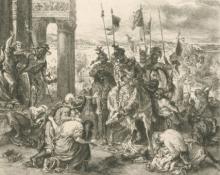
The conservative Twitterverse is all riled up because at Feb. 5 National Prayer Breakfast (an event founded and run by the secretive Christian organization known as The Fellowship), President Obama said that Christians, as well as Muslims, have at times committed atrocities. His words:
“Humanity has been grappling with these questions throughout human history. And lest we get on our high horse and think this is unique to some other place, remember that during the Crusades and the Inquisition, people committed terrible deeds in the name of Christ. In our home country, slavery and Jim Crow all too often was justified in the name of Christ.”
This would seem to be Religious History 101, but it was nonetheless met with shock and awe.
“Hey, American Christians–Obama just threw you under the bus in order to defend Islam,” wrote shock jock Michael Graham. Rep. Marlin Stutzman, R-Ind., called the comments “dangerously irresponsible.” The Catholic League’s Bill Donohue said: “Obama’s ignorance is astounding and his comparison is pernicious. The Crusades were a defensive Christian reaction against Muslim madmen of the Middle Ages.”
More thoughtfully, Russell Moore, president of the Southern Baptist Ethics and Religious Liberty Commission, called Obama’s comments about Christianity “an unfortunate attempt at a wrongheaded moral comparison. … The evil actions that he mentioned were clearly outside the moral parameters of Christianity itself and were met with overwhelming moral opposition from Christians.”
Really?
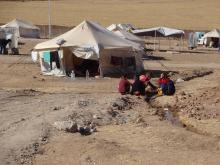
REV. KHALIL JAAR is a warm, passionate, and energetic man—and he needs to be. As the spiritual leader and “go to” guy for the 150 Iraqi Christian refugees living in his church in Amman, Jordan, he needs all the energy he can get.
When I met with Father Jaar at St. Mary, Mother of the Church congregation in Amman, it quickly became obvious how much he loves the refugees who now call this church home. Jaar, himself a refugee, knows something about the trials and tribulations of being forced to leave your home. He is the son of Palestinian refugees of Honduran descent. (His birth name is Carlos and he took the name Khalil when he became a Catholic priest.) He also knows something about the terror of war. Shortly after the 2003 U.S. invasion of Iraq, he was abducted in Baghdad where he was serving, and “only by the grace of God was I freed,” he says.
Jaar is especially dedicated to the education of the Iraqi children forced to leave everything they knew, including their schools. In his overcrowded office, full of stacks of papers and files, Jaar pulls out a large binder. This is his personal reference book, with a page for each child in his care. It includes a photo, a short history of their family and background, their education to date, and also notes about their extracurricular activities and likes, such as soccer and music. It is important to know as much as possible about each child, he says, and make sure that they continue their education.

After my article on the terrorism in Paris last week, readers offered some thoughtful critiques of my position. Their comments zero in on the difficulty inherent in sorting out responsibility for violence without blaming victims or excusing perpetrators. My effort, however flawed, in analyzing this instance of violence had one goal in mind: to discredit our methods for justifying violence. What seems to have elicited the most concern is my use of the image of a dragon to discuss René Girard’s concept of the sacred. I pointed out that the editors at Charles Hebdo unapologetically embraced radical secularism. They believed that sacred structures are not only as dead as a mythical dragon, but that they have no function in modern society. I begged to differ, not because I am a fan of the archaic sacred, as Girard calls it, but because I am extremely concerned that continuing to remain ignorant of the way it functions in modern society is the greatest global threat we face today. Here are four things you need to know about the relationship between the archaic sacred and violence and how that relationship threatens our world:
1. Categorical Confusion
The archaic sacred is also called the false sacred because it generates a world in which false differences appear to be true. We see this dynamic clearly in the actions of terrorists who believe in a false difference between legitimate targets for violence (Western secularists, for example) and victims of violence who must be avenged (their religious and national compatriots). We easily condemn them for justifying their own violence with self-righteous fervor. Trying to expose the difference humans have constructed as categorical lies is the driving force behind our work at the Raven Foundation.
Let me be clear: No human being is a legitimate target for violence, period. To say otherwise is indeed to blame the victim and excuse perpetrators. However, to defend victims of violence by glorifying their deaths or sanctifying the values that apparently got them murdered is to play into the hands of the archaic sacred. Why? Because by explaining why these victims did not deserve to die, we indirectly acknowledge the possibility that some victims might indeed deserve what they get. In other words, the victims of the Paris terrorism are not to be mourned because they were good, noble, or saintly people. It wouldn’t matter if they were liars, cheats, and murderers – no one needs to earn the right to NOT be murdered. To hang on to the difference between those who deserve to die and those who don’t is to hang on in confusion to a false difference that serves only one purpose – to sanctify violence and ensure its continued presence as a plague in our world.
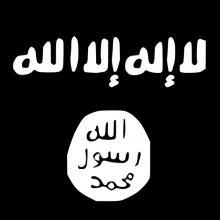
For most of recorded history, Isis was an Egyptian goddess, a benevolent type who cared for widows and orphans, cured the sick and even brought the dead back to life.
This year, the world met the other ISIS.
The rise of the so-called Islamic State, variously known as ISIS or ISIL, dominated headlines in 2014 as a self-proclaimed caliphate sowed death and destruction across Iraq and Syria. For some, the group confirmed their worst fears about Muslim extremists, bent on killing religious minorities and subjugating women in a quest for domination that included leveling villages and beheading hostages.
The terror wrought by the Islamic State reflected a sense of turbulence that upended international news in 2014. But it was not the only source of unrest. The Ebola virus in west Africa put the world on edge, and a bloody war between Israelis and Palestinians in Gaza, kidnapped schoolgirls in Nigeria and the slaughter of more than 100 children at a military school in Pakistan added to the mix.
At home, America wrestled with police brutality as grand juries declined to prosecute officers in the deaths of unarmed black men in Ferguson, Mo., and New York City. From botched prison executions to a stream of desperate migrant children flooding America’s southern border, things felt troubled, disorienting, always on the verge of breaking apart.
Religion played a large role in those stories, and in other major headlines from 2014:

THE U.S. AND other nations are increasingly aware that the so-called Islamic State is a serious, long-term threat to Middle East stability. And it has become clear that there are few good options for addressing the situation without the willingness and ability of the Iraqi government to promote inclusion and weed out corruption.
In the midst of all this, the plight of Iraqi Christians has taken center stage. Since the U.S.-led invasion of Iraq in 2003, more than two-thirds of the Iraqi Christian community has left the country, with many fleeing as a result of violence and religious persecution.
This exodus has only increased as the reach of the Islamic State, or ISIS, has expanded and its reputation for brutality become widely known. The militant group has publicly beheaded hostages for propaganda purposes, committed mass killings, and given Christians the ultimatum: Convert to Islam, pay a fine, or face death if they remain faithful to their beliefs.
Followers of Christ have existed in the area now called Iraq since the earliest days of Christianity. Now there is a serious debate as to whether the faith has a viable future in this ancient of lands.
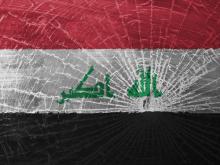
Elsewhere, Courtney describes the effect as recognizing the blood of your enemies physically pumping in your veins. It is a striking example of interdependence — physically and metaphysically.
Perhaps what’s spiritual is what’s biological. In the midst of the ongoing violence, Preemptive Love Coalition performed its 1,000th heart surgery last month.